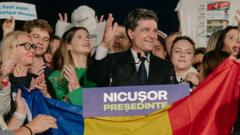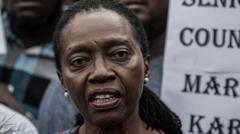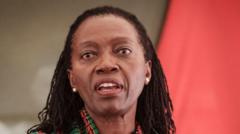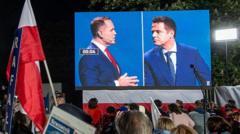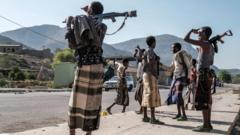The election of Nicusor Dan as Romania's new president signals a collective desire for change among voters disillusioned with the longstanding political elite. As he steps into office, Dan must navigate significant challenges posed by a deeply divided electorate, competing populist sentiments, and external pressures.
New Romanian President Faces Daunting Divisions and Expectations
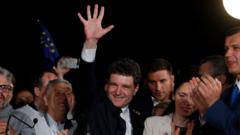
New Romanian President Faces Daunting Divisions and Expectations
Nicusor Dan's election marks a pivotal moment for Romania amid a backdrop of political extremes and societal divisions, raising questions about the nation's future direction.
Nicusor Dan has emerged from relative obscurity to claim the presidency of Romania, signifying a profound shift in a nation traditionally torn between political extremes. His victory, marked by his soft-spoken demeanor and mathematical background, stands in stark contrast to that of his opponent, George Simion—a hard-right nationalist known for his inflammatory rhetoric. This election reflects more than just a personal triumph for Dan; it embodies the frustrations of many Romanians who voted against the entrenched political establishment that has dominated for decades.
As the newly elected president, Dan inherits a landscape shaped by polarized viewpoints and a yearning for significant reform. Political analysts suggest that the increased voter turnout reflects a mobilization of urban middle-class citizens who fear a regression to older, more nationalistic policies championed by Simion and his supporters. The contrast between Dan's message of unity under European ideals and Simion's divisive nationalist stance appealed to anti-establishment sentiments among various demographics.
The election process revealed the complexities of Romania's societal values. While some segments of the population rallied around Simion's calls for traditionalism and nationalism, citing concerns over EU influence on local matters such as LGBTQ rights, others were swayed by his perceived aggressive behavior and controversial statements. Voters expressed disappointment when Simion's campaign faltered due to his misstatements and critical approach toward other European leaders.
Romanians also voiced their wariness about external influences, particularly regarding Russia's presence in their electoral processes. This factor galvanized support for Dan, who advocates for a strong partnership with the European Union—a sentiment echoed by younger voters who fear losing their democratic values and potential European integration if nationalist agendas prevail.
With Dan's victory, expectations are high for swift action and tangible results. Yet, as analysts warn, if the mainstream political structure fails to address the needs of its constituents, the undercurrents of populism and nationalism could rise again, potentially paving the way for leaders like Simion in future elections. As Romania stands at a crossroads, the new president’s ability to unify a fractured nation will be critical in shaping the country's trajectory in the years to come. Balancing the desires for change and maintaining democratic ideals poses a significant challenge for Dan's administration.


